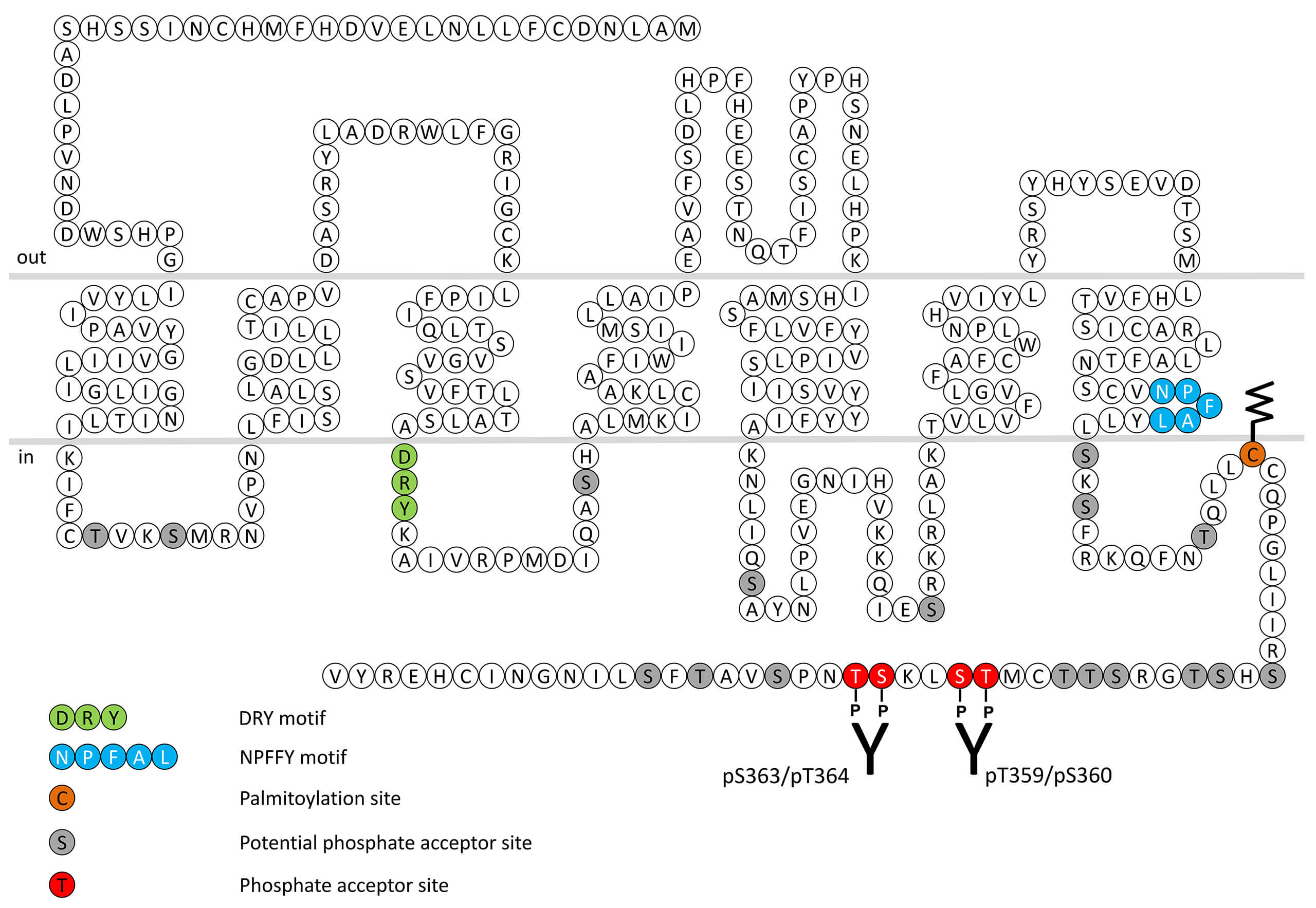Bombesin Receptor 2 Antibodies

The BB2 receptor has a 50-fold higher affinity for gastrin-releasing peptide (GRP) than for neuromedin B (NMB). The human BB2 receptor is a 384 amino acid protein and shows a high degree of homology with the mouse receptor. The highest levels of the BB2 receptor are in the pancreas, with lesser amounts in the stomach, prostate, skeletal muscle and CNS. In the gastrointestinal tract BB2 receptor activation causes stimulation of acid secretion, as well as pancreatic and intestinal secretion and stimulates gastrointestinal motility causing gallbladder contraction. In addition to stimulating tissues directly by interacting with BB2 receptors, GRP stimulates the release of a large number of hormones and neurotransmitters (cholecystokinin, gastrin, somatostatin, pancreatic glucagon, insulin, enteroglucagon, neurotensin, gastric inhibitory polypeptide) which can also have potent effects. Numerous studies demonstrate that BB2 receptors play a number of important roles in various processes in the CNS including regulation of circadian rhythm, body temperature control, grooming behaviours, modulation of fear, stress and anxiety, memory as well as pruritic responses. BB2 receptors are one of the most frequently over-expressed or ectopically expressed receptors on human cancers. BB2 receptor desensitization, β-arrestin recruitment and internalization are regulated by phosphorylation of carboxyl-terminal threonine359/serine360 (pT359/pS360-BB2) and serine363/threonine364 (pS363/pT364-BB2). This nomenclature refers to the human BB2 receptor. This phosphorylation motif is highly conserved across species but corresponds to pT360/pS361-BB2 and pS364/pT365-BB2 in mice and rats. For more information on BB2 pharmacology please refer to the IUPHAR database. For further reading refer to:
Jensen RT, Battey JF, Spindel ER, Benya RV. International Union of Pharmacology. LXVIII. Mammalian bombesin receptors: nomenclature, distribution, pharmacology, signaling, and functions in normal and disease states. Pharmacol Rev. 2008 Mar;60(1):1-42. doi: 10.1124/pr.107.07108. Epub 2007 Nov 30. PMID: 18055507; PMCID: PMC2517428.
 pS363/pT364-BB2 (phospho-Bombesin Receptor 2...
pS363/pT364-BB2 (phospho-Bombesin Receptor 2...  pT359/pS360-BB2 (phospho-Bombesin Receptor 2...
pT359/pS360-BB2 (phospho-Bombesin Receptor 2...  BB2 (non-phospho), Bombesin Receptor 2 Antibody
BB2 (non-phospho), Bombesin Receptor 2 Antibody 

